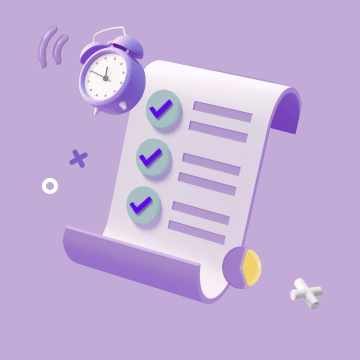
What Is a Vertical AI Agent and How It Optimizes AI Workflows
A vertical AI agent is a specialized AI agent designed to handle tasks within a specific industry or domain, delivering precision, efficiency, and context-aware decisions. By focusing on sector-specific workflows, these agents help businesses automate processes with greater accuracy.
Many modern AI agent platforms, including platforms where users can deploy AI-powered SEO agents, integrate solutions such as bika.ai, which allows teams to organize and coordinate vertical AI agents within a single interface. This approach helps reduce errors, accelerate decision-making, and provide actionable insights tailored to the specific needs of each business sector.
What Is a Vertical AI Agent and How Can It Transform Industry Workflows?
A vertical AI agent is a specialized AI system designed for a specific industry or function, capable of performing complex tasks with deep domain knowledge. Unlike general-purpose AI, vertical agents excel in niche workflows, delivering precise insights and automating tasks that require industry expertise.
Why Vertical AI Agents Matter:
- Domain Expertise: Built for a particular sector, these agents understand industry terminology, regulations, and processes.
- Specialized Task Performance: They handle nuanced tasks such as underwriting loans, processing insurance claims, or managing retail inventory more accurately than generic AI.
- Seamless Workflow Integration: Vertical AI agents can connect to existing systems on an ai agent platform, enabling end-to-end automation and collaborative work across teams.
- Enhanced Accuracy: Trained on specialized datasets, these agents reduce errors and provide actionable insights for critical business decisions.
Practical Applications:
- Retail: AI-powered SEO agents autonomously update product listings, optimize content, and manage stock data.
- Healthcare: Streamline patient intake, documentation, and compliance checks.
- Finance: Detect fraudulent transactions by analyzing industry-specific patterns.
- Legal: Extract key information from complex contracts efficiently.
💡 Interactive Prompt: Which repetitive, high-volume tasks in your industry could a vertical AI agent automate to save time, reduce errors, and deliver more precise insights?
How Vertical AI Agents Mirror the SaaS Revolution in Enterprise Automation
Understanding what is a vertical AI agent is crucial for modern businesses aiming to streamline operations. These agents, purpose-built for specific industries, combine deep domain knowledge with autonomous capabilities, allowing them to execute complete workflows rather than just isolated tasks.
Much like the SaaS revolution, which transformed software delivery by making tools scalable, accessible, and integrated, vertical AI agents are reshaping enterprise efficiency by offering modular, specialized solutions.
Key Advantages:
- Scalable Integration: An ai agent platform can deploy multiple vertical AI agents simultaneously, supporting growth without adding human overhead.
- End-to-End Workflow Automation: Agents handle tasks from start to finish, such as managing content creation, optimizing SEO, and monitoring analytics.
- Specialized Intelligence: By focusing on industry-specific processes, these agents deliver higher accuracy and actionable insights compared to general-purpose AI.
- Faster ROI: Businesses experience immediate efficiency gains, similar to how SaaS reduced software maintenance costs while improving operational flexibility.
Example Scenario:
Consider a marketing team using ai-powered SEO agents through a robust ai agent platform. Each agent autonomously updates meta tags, analyzes backlinks, and tracks performance metrics across multiple websites. Standardized protocols ensure smooth communication between agents, minimizing errors and duplicative work, while the team receives concise dashboards highlighting actionable insights.
This mirrors how SaaS unified enterprise functions decades ago, demonstrating the potential of vertical AI agents to redefine workflow automation.
What Core Functions Make Vertical AI Agents Essential for Businesses?
Vertical AI agents combine context-aware decision-making, task coordination, and workflow automation to support enterprise operations. They handle complex, repetitive processes that traditionally require multiple human roles.
For example, these agents can:
- Generate detailed business reports.
- Automate SEO workflows as ai-powered seo agents.
- Integrate seamlessly within ai agent platforms to synchronize data from multiple sources.
bika.ai demonstrates how vertical AI agents can be orchestrated in practice, allowing teams to deploy, manage, and optimize multiple agents from a single interface. This approach reduces human error while increasing efficiency and insight over critical workflows.

Why Are Companies Starting to Use Vertical AI Agents in Their AI Stack?
Beyond their core functionalities, vertical AI agents offer strategic advantages that mirror the SaaS revolution, transforming how businesses scale and execute workflows.
Businesses are increasingly incorporating vertical AI agents into their AI ecosystems not merely because AI is trendy, but because these agents deliver stable, scalable, and measurable results.
This adoption mirrors the SaaS revolution: just as web-based SaaS transformed enterprise software by centralizing complex tasks in the cloud, vertical AI agents streamline industry-specific operations with specialized intelligence. Companies can now deploy modular, highly-focused agents that handle workflows from start to finish, reducing reliance on large teams and cutting operational costs.
Why Businesses Choose Vertical AI Agents:
- Efficiency: Repetitive or manual tasks are automated without compromising quality, freeing human teams for higher-value work.
- From Advice to Action: Unlike general-purpose AI, vertical AI agents can generate outputs that plug directly into business processes, from content management to financial reporting.
- Replicable Competitive Advantage: With deep domain knowledge, these agents consistently execute specialized workflows, making high-quality results repeatable across teams and locations.
- Compliance and Transparency: Their structured outputs and clear domain boundaries support regulatory adherence, reducing risks in sensitive sectors like healthcare or finance.
- Seamless Integration: Vertical AI agents connect effortlessly with existing ai agent platforms, allowing companies to expand their AI stack without costly system overhauls.
- Scalable Marketing Automation: In practice, ai-powered SEO agents can autonomously manage multi-site campaigns, optimizing meta data, analyzing trends, and reporting insights across channels—all while adhering to standardized protocols.
🌟 Warm Reminder: Organizations adopting vertical AI agents are not just experimenting—they are turning AI into a predictable ROI driver. By leveraging proprietary data and industry-specific fine-tuning, these agents can outperform general AI tools, creating enterprise solutions that are more efficient, integrated, and scalable than ever before.
How Vertical AI Agents Enhance Workflow Automation and SEO
Vertical AI agents can significantly streamline content marketing and SEO workflows, especially when integrated into a capable ai agent platform. By combining industry-specific expertise with automation, these agents can identify content gaps, track trending topics, and optimize metadata, reducing manual work and boosting search visibility.

Tools like bika.ai allow teams to coordinate multiple vertical AI agents in a single workspace, enabling seamless automation of repetitive SEO tasks, from keyword analysis to internal linking adjustments. At the same time, human teams can focus on strategy, creativity, and high-level decision-making, while agents maintain consistency and operational precision.

💡 Pro tip: Using vertical AI agents alongside ai-powered SEO agents can help your content reach wider audiences, improve engagement metrics, and free valuable time for strategic initiatives.
Conclusion
Vertical AI agents are reshaping how businesses operate by combining domain expertise, intelligent automation, and seamless workflow integration.
They not only optimize individual tasks but also foster collaboration across departments, creating more agile, efficient, and resilient organizations.
Integrating these agents with an AI agent platform ensures that insights, automation, and strategic initiatives are harmonized, enabling companies to unlock the full potential of their AI-driven workflows.
Reflect on your own processes: where could vertical AI agents drive precision, efficiency, and cross-functional impact?

Recommend Reading
Recommend AI Automation Templates




